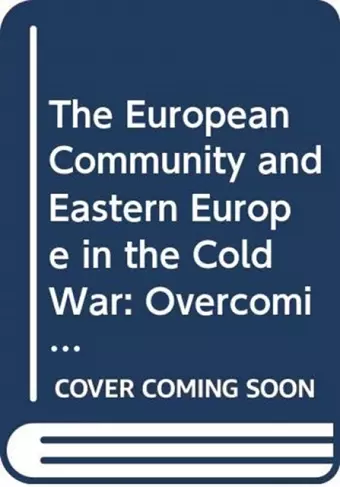The European Community and Eastern Europe in the Long 1970s
Challenging the Cold War Order in Europe
Format:Hardback
Publisher:Taylor & Francis Ltd
Publishing:15th Jan '26
£145.00
This title is due to be published on 15th January, and will be despatched as soon as possible.

This book is an historical investigation into the role of the European Community in the overcoming of the East-West divide during the Cold War.
Making use of recently released primary sources from a broad range of European and U.S. archives, the work reveals the ability of the EC and its member states to shape, implement and further develop a coordinated Eastern policy and play a significant transformative role in the Continent. It demonstrates that the EC polity successfully managed to challenge Soviet bloc-keeping imperatives, resist the US call for a confrontational stance towards the Communist world, and promote instead new intra-European relations based on cooperation and interdependence. The book argues that the EC Ostpolitik contributed to undermining the socialist integration, offered an alternative path of relations to Eastern European countries, and established the influential role of the Community in the continent, laying the ground on which to build post-Cold War Europe.
This book is a thorough addition to both Cold War and European integration historiographies, and sheds new light on the interrelation between the two. It also adds to the broader history and understanding of contemporary Europe in that it reveals a pro-active role of the EC towards the East since the early 1970s, whereas historians and political scientists generally admit an effective role of the European institutions only in the post-communist era. The book actively engages with Cold War historiographical debates on détente and its alleged crisis, the end of the Cold War, and the role of actors other than the superpowers in shaping East-West relations. The EC is now recognised as having played a determinant role in the Helsinki Conference on Security and Cooperation in Europe (CSCE) and the elaboration of its Final Act. The volume demonstrates that the EC was an important actor in the Cold War beyond the time and scope of the Helsinki Conference, and actively and effectively contributed to the overcoming of the bloc order in Europe.
This book will be of much interest to students of Cold War Studies, European political history, foreign policy and international relations.
ISBN: 9780415730129
Dimensions: unknown
Weight: 453g
240 pages